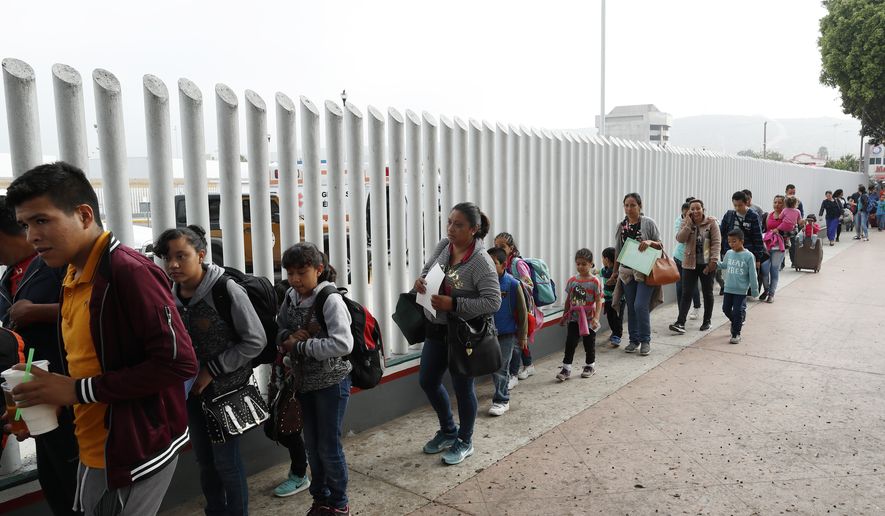Some illegal immigrants gained a new right of appeal Thursday when a federal appeals court ruled that Congress cannot prevent them from challenging their deportations in federal courts.
The American Civil Liberties Union, which had argued the case, called it a “sweeping” decision that will give asylum-seekers the chance to make their case in a regular U.S. court, rather than being limited to bureaucrats and judges in the immigration court system.
The ruling was issued by the 9th U.S. Circuit Court of Appeals and only applies to cases within that region — including the border states of California and Arizona.
The three-judge panel — all appointees of President Clinton — said Congress cannot short-circuit access to the courts for illegal immigrants who say they wanted to ask for asylum but were given short-shrift by the Homeland Security Department.
They said migrants arriving in the U.S., even those without status, have a habeas corpus right to have their treatment reviewed by federal courts, particularly because there are only “meager” safeguards built into the system already.
“Habeas review provides important oversight of whether DHS complied with the required credible fear procedures,” Judge A. Wallace Tashima wrote in the opinion for the unanimous panel.
The 9th Circuit’s ruling overturned a district court judge, an Obama appointee. It also conflicts with another decision by the 3rd U.S. Circuit, which looked at the same question and came to the opposite conclusion.
That could make the case ripe for an appeal to the Supreme Court, since the justices are often more eager to step in when there’s a split among the circuits.
The Justice Department declined to comment on the setback.
Thursday’s case involved a Sri Lankan man, Vijayakumar Thuraissigiam, who fled to Mexico in 2016, then snuck into the U.S. in early 2017, was arrested and put into what’s known as “expedited removal,” a fast deportation process that prevents the federal courts from getting involved in all but a few specific circumstances.
Mr. Thuraissigiam then requested asylum.
An asylum officer reviewed his claim and decided it was lacking. That decision was affirmed by a supervisor, and then by an immigration judge, who is part of the executive branch.
Mr. Thuraissigiam then sued, arguing his rights had been violated by the proceedings.
The government argued federal courts couldn’t hear the case, pointing to the law that only allows court challenges in limited cases where someone claims he’s actually a citizen, whether he has another legal right to be in the U.S., and whether he was actually ordered deported.
The 9th Circuit said those circumstances were too limited.
It said the Supreme Court had extended habeas rights to terrorism suspects at Guantanamo, who’d never set foot on U.S. soil, so under that same framework, people who have reached the U.S., even if they did so without authorization, have habeas rights.
“The historical and practical importance of this ruling cannot be overstated,” said Lee Gelernt, deputy director of the ACLU’s immigrants’ rights project. “This decision reaffirms the Constitution’s foundational principle that individuals deprived of their liberty must have access to a federal court.”
• Stephen Dinan can be reached at sdinan@washingtontimes.com.




Please read our comment policy before commenting.